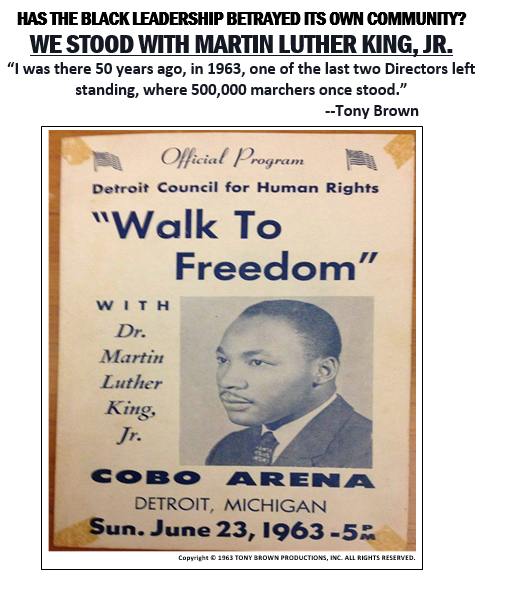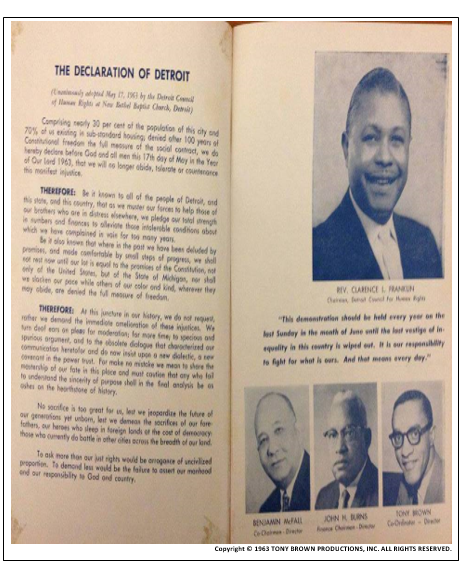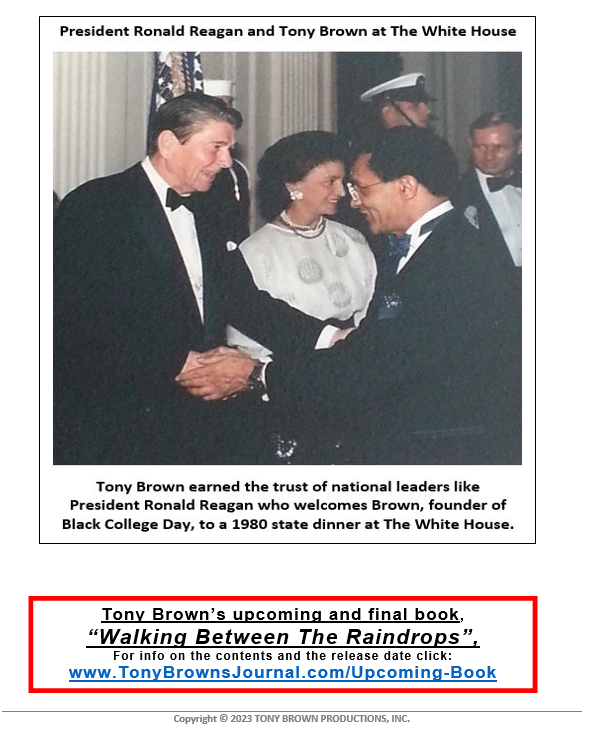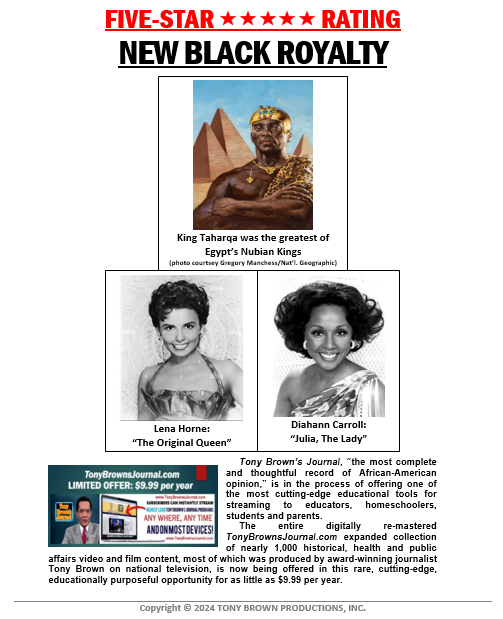TBJ #111 – Has America Had Five Black Presidents? An investigation of five U. S. presidents who were alleged to have Black ancestry is presented in J. A. Rogers’ book “The Five Negro Presidents.” Rogers’ book was intended to denounce categorizing different ethnicities and combine them into the human race.
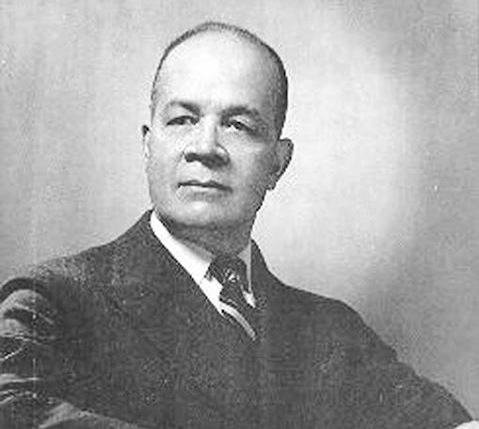 J. A. Rogers subsequently revealed that General Thomas Alexandre Dumas, Ludwig von Beethoven, Alexander Pushkin and Cleopatra were descendants of ancient Alkebulan, which is known today as the continent of Africa.
J. A. Rogers subsequently revealed that General Thomas Alexandre Dumas, Ludwig von Beethoven, Alexander Pushkin and Cleopatra were descendants of ancient Alkebulan, which is known today as the continent of Africa.
In 1972, during an episode of Tony Brown’s Journal (TBJ), I interviewed Dr. Hollis Lynch, Director of the Institute of African Studies at Columbia University in New York, and Dr. Thomas Cripps, a historian at Morgan State University. I asked both men to give me their personal assessments of J. A. Rogers as a historian.
Dr. Lynch responded during that 1972 TBJ interview by stating, "Rogers was the most significant popular historian of Black people in his time. Unfortunately, he's been very sadly neglected by academic historians. But there is no question at all that he was a most impressive man and historian.”
Dr. Thomas Cripps said that “J. A. Rogers was a force in American Historical study and introduced Blacks to thousands of facts they didn't know.” J. A. Rogers was a diligent and prolific author of some 10 books. Rogers' books will not let us rest or remain comfortable with man-made racial terms. His intent was to denounce the idea of race, other than, of course, the human race or human sentients. His research on known civilizations uncovered evidence of African ancestry in many a household name, which would be Black or of African origin by current laws and customs.
Rogers used history, historical events, and personalities, supported by massive evidence, to demonstrate the accuracy of human history, which is composed mainly of triumphs and failures by people or members of a human race.
Therefore, I ask what difference does it really make if Jackson, Jefferson, Lincoln and Harding were Black? Would that change anything? Would their mistakes seem any more justified or their faults any less human? Of course not. This was the point that J. A. Rogers made.

